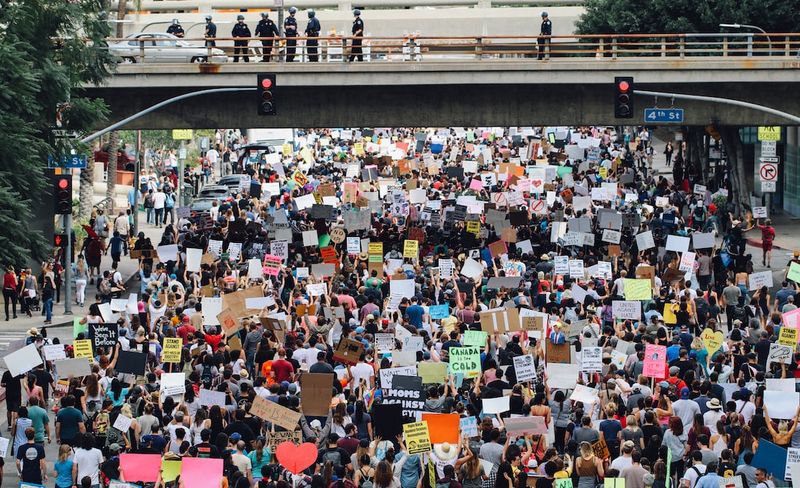The Controversy Surrounding the Planned Bible Burning in Stockholm: Freedom of Speech vs. Religious Sensitivities
Introduction
The recent controversy arising from the planned Bible burning by Swedish national Ahmed Alloush in front of the Israeli Embassy in Stockholm has sparked a heated debate surrounding the limits of freedom of speech and the protection of religious sensitivities. While Alloush claims that his intention was to test the Swedish authorities and ensure equal treatment in the enforcement of laws regarding the burning of religious texts, Israeli leaders, senior officials, and religious figures have vehemently condemned the planned act. The incident raises important questions about the delicate balance between the protection of individual expression and the need to respect religious beliefs.
The Background
The controversy surrounding the planned Bible burning originated from the burning of a Quran in front of a mosque in Stockholm two weeks prior. This act, carried out by unknown individuals, led to outrage within the Muslim community and sparked a backlash in Sweden. Alloush submitted his request to burn the holy books as a response to this incident, aiming to highlight what he perceived as selective enforcement by Swedish authorities.
The Position of Swedish Authorities
Swedish police approved Alloush’s request to hold the gathering, citing the right to freedom of speech enshrined in the Swedish constitution. The police noted that their role is to permit public meetings rather than endorse specific actions. The decision was met with condemnation from Israeli leaders, who argued that the burning of sacred texts undermines interfaith harmony and disregards the deep spiritual significance attached to these holy books.
Israeli Reaction and Condemnation
President Isaac Herzog expressed his unequivocal condemnation of Sweden’s permission to burn holy books. As the president of Israel, Herzog emphasized that he had previously condemned the burning of the Quran, highlighting the need for respect and understanding among different religious communities. Prime Minister Benjamin Netanyahu also criticized the decision, asserting that burning the Hebrew Bible amounts to hatred and incitement rather than freedom of expression. Former Prime Minister Naftali Bennett joined the chorus of voices discouraging the act, urging Alloush not to burn the Torah.
International Appeal
The controversy surrounding the planned Bible burning reached international attention, leading to Chief Rabbi Yitzhak Yosef sending a letter to Sweden’s King Carl Gustaf XVI, urging him to intervene and prevent the act. Yosef emphasized that the condemnation extended beyond the burning of the Holy Bible, as the recent burning of the Quran also drew vehement denouncement. Diaspora Affairs and Combating Antisemitism Minister Amichai Chikli wrote a letter to Swedish Prime Minister Ulf Kristersson, comparing the planned Bible burning to Nazi book burnings and appealing for his intervention to prevent the act.
Freedom of Speech vs. Religious Sensitivities
The planned Bible burning in Stockholm raises critical questions about the delicate balance between freedom of speech and the protection of religious sensitivities. While freedom of expression is a fundamental democratic principle, there are instances where it must be tempered to ensure respect and harmony among diverse religious communities. Incidents such as the burning of religious texts can deeply offend believers and create an atmosphere of tension and division.
Philosophical Considerations
John Stuart Mill, the influential English philosopher, argued that freedom of speech should be protected unless it directly incites harm or poses an imminent threat. In the case of religious texts, the burning of such books can be seen as a symbolic act that incites offense and undermines the fundamental principles of respect for religious beliefs.
Editorial Perspective
In our increasingly interconnected world, where diversity and pluralism are celebrated, it is crucial to find ways to promote dialogue, understanding, and respect among religious communities. While freedom of speech is a cornerstone of democracy, it should not become a tool for provocation or the spread of hatred. Protecting the sanctity of religious texts is part of maintaining a harmonious society where individuals’ beliefs are respected.
Advice and Conclusion
To prevent future incidents that could further strain interfaith relations, it is important for authorities to establish guidelines and restrictions on actions that may deeply offend religious sentiments. Open dialogue and education about the importance of religious tolerance are essential for fostering mutual respect and understanding. By striking a balance between the protection of freedom of expression and safeguarding religious sensitivities, society can move towards a more inclusive and harmonious future.

<< photo by Hatice Baran >>
The image is for illustrative purposes only and does not depict the actual situation.
You might want to read !
- Inter Miami Ramps Up Security and Luxury with New VIP Areas as Lionel Messi Joins
- Shakira and Jimmy Butler’s Blooming Romance: Exploring the Early Stages of Love
- Bird Box Barcelona’s Cowardice Hinders its Narrative Potential
- Searching for the Purr-fect Caretaker: Marketa Vondrousova Seeks Catsitter after Impressive Wimbledon Final Run
- Deep Dive: Analyzing Hugh Grant’s Oompa-Loompa in the New “Wonka” Trailer
- Battle of the Flyweights: Pantoja vs. Moreno Full Fight Analysis & Video Highlights
- Turkey’s Changing Outlook: Exploring the Reasons behind Its Shift on Sweden’s NATO Membership
- Elton John: America’s “Disgraceful” Anti-Progress Backslide
- Rebecca Ferguson is Having a Moment: From Mission Impossible to Dune, Her Rise in Hollywood
- Louis Lacroix’s show welcomes cultural columnist – Editorial Exploration
- Wildfires in Quebec and Northern Ontario Affecting Local Air Quality: An Editorial Exploration




